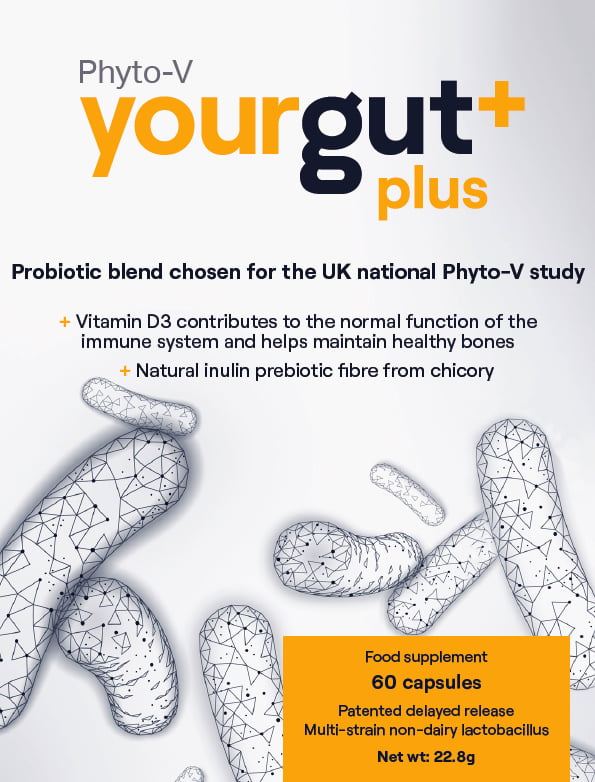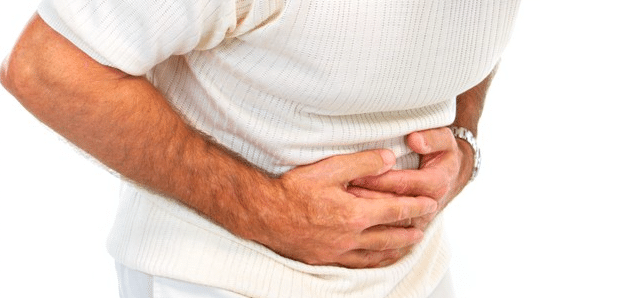During the dark winter months it’s really important to maintain healthy levels of vitamin D. Low levels are linked to sadness, fatigue, low fertility and an increased risk of cancer, osteoporosis, arthritis, heart disease, dementia and more recently covid, and other viral infections ...read more
Sensible exposure to sunlight is the most reliable why to maintain vitamin D levels but it is also present in some foods such as oily fish and mushrooms… read more
A vitamin D supplement is a good way to keep your vitamin D levels high but most available over-the-counter have not been shown to actually increase blood levels. The most effective vitamin D supplements are combined with probiotics as there is synergy between them.

Several clinical trials have reported that oral Lactobacillus probiotic strains resulted in significantly increased serum vitamin D3 levels. Researchers have shown that the likely mechanism for this is increased lactic acid production from the probiotic bacteria, which in turn increases the enzyme responsible for vitamin D absorption and synthesis.
As well as the benefits mentioned above, vitamin D and probiotics have been shown to increase the effectiveness of anti-viral (flu) vaccines – this is why Yourgutplus+ has been selected for the UK covid vaccine enhancement study.
Yourgutplus+ also has other strong scientific credibility. It was selected for the UK National Nutritional Covid intervention study, which found a link between this lactobacillus blend with enhanced recovery from early and long covid [Read full paper]. It is also now being used in the latest prostate cancer nutritional intervention study
References
- Singh P et al. The role of vitamin D as a gut microbiota modifier in healthy individuals.Sci Rep 2020; 10, 21641.
- Singh P et al. Role of Lactobacillus acidophilus in chronic fatigue syndrome: Neurogastroenterol Motil. 2012; 24(4):366
- Yoon S et al. Probiotic regulation of vitamin D receptor in intestinal inflammation. Gastroenterology. 2011;140:S–19.
- Wu S et al. Vitamin D receptor pathway is required for probiotic protection in colitis. Am J Physiol Gastro Liver Physiol. 2015;309:G341–G349.
- Jamilian M et al. The effects of vitamin D and probiotic co-supplementation on glucose homeostasis, inflammation, oxidative stress and pregnancy outcomes in gestational diabetes: A RCT. Clin. Nutr. 2019, 38, 2098–2105.
- Costanzo M et al. Vitamin D and Lactobacillus cooperate to reduce gut inflammation. Beneficial microbes 9, 389–399 (2018).
- Shang M et al Vitamin, probiotics, and gastrointestinal diseases. Current medicinal chemistry 24, 876–887 (2017).
- Jones M et al. Oral lactobacillus probiotic increases vitamin D levels The J of Clin End Metabol 98, 2944 (2013).
- Daneshkhah A, et al. Role of vitamin D in suppressing cytokine storm and associated mortality in Covid-19 patients. MedRxiv 2020.04.08.20058578.
- Weir E et al. “Does vitamin D deficiency increase the severity of COVID-19?.” Clinical Medicine. 2020; 20,4: e107-e108.
- Demir M et al . Vitamin D deficiency is associated with Covid-19 positivity and severity of the disease. J Med Virol. 2021; 93(5):2992-99.
- Kurian S et al. Probiotics in Prevention and Treatment of Covid-19: Current Perspective and Future Prospects. Archives of medical research 2021; 52(6), 582–594.
- Lin L, Jiang X, Zhang Z et al. Gastrointestinal symptoms of 95 cases with SARS-CoV-2 infection. Gut 2020;69:997–1001.
- Olaimat A, Aolymat A, Al-Holy M et al. The potential application of probiotics and prebiotics for the prevention and treatment of Covid-19. Sci Food 2020, 4, 17.
- Dhar D and Mohanty A. Gut microbiota and Covid-19- possible link and implications. Virus Res. 2020; 285:198018.
- Chen Y, Gu S, Chen Y, et al. Six-month follow-up of gut microbiota richness in patients with Covid-19 Gut. 2021 Published Online doi: 10.1136/gutjnl-2021-324090.
- Gu S, Chen Y, Zhengjie Wu Z, et al. Alterations of the Gut Microbiota in Patients With Coronavirus Disease or H1N1 Influenza. Clinical Infectious Diseases. 2019; 71: 10, 2669–2678.
- NgS and Tilg H. Covid-19 and the gastrointestinal tract: more than meets the eye Gut 2020;69:973-974.
- Yeoh Y, Zuo T, Lui G et al. Gut microbiota composition reflects disease severity and dysfunctional immune responses in patients with Covid-19: Gut 2021;70:698-706.
- Wan Y, Li J, Shen L, Zou Y, Hou L, et al. Enteric involvement in hospitalised patients with COVID-19 outside Wuhan. Lancet Gastroenterol Hepatol. 2020 5(6):534-535.







[…] What’s more, vitamin D, inulin and the other prebiotics in phyto-v also help restore gut health and reduce systemic (whole body) inflammation – read more […]